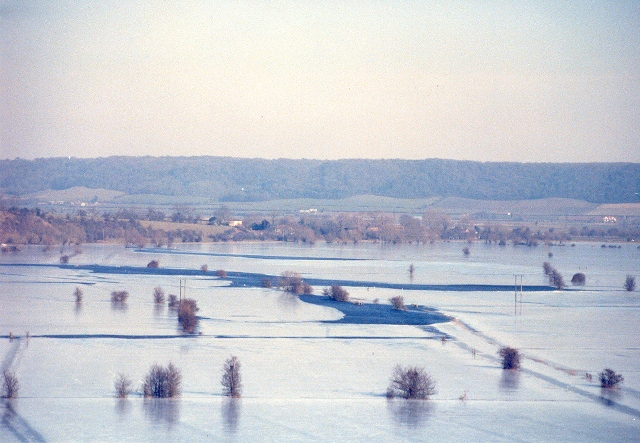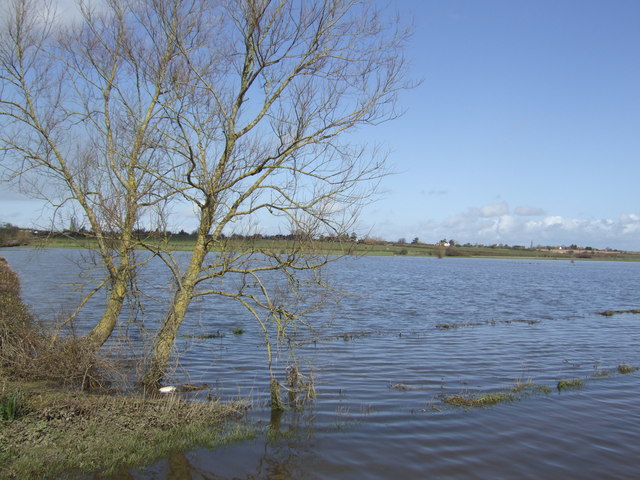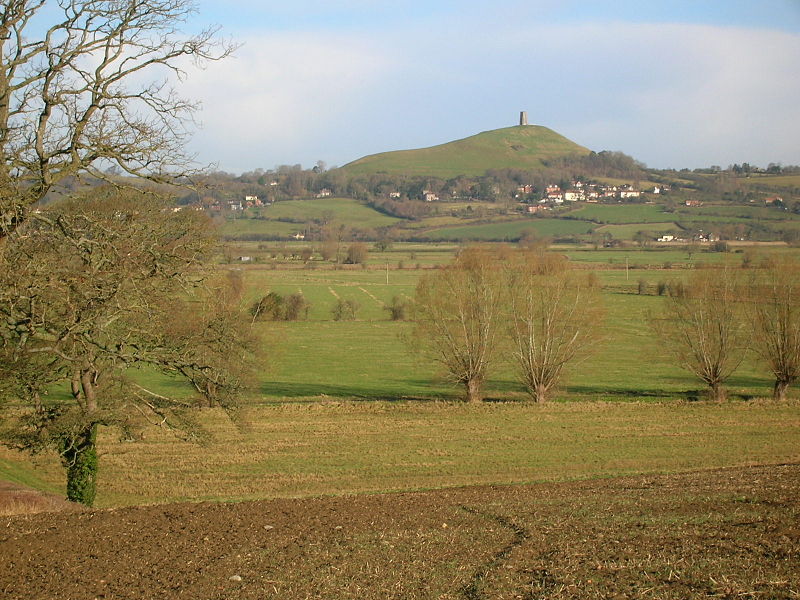
Messi is a pseudonym. He has worked on flood risk and water level management and nature conservation in the UK and overseas, advised farmers on agri-environment schemes and, most recently, has worked on community-led, nature-based tourism development in SE Europe and SE Asia.
The heat of the day was freshened somewhat by a cooling breeze as I lazed in my hammock, overlooking the vast, shimmering Tonle Sap lake from the veranda of my waterside guest house in Cambodia’s Siem Reap town.
Water levels here fluctuate wildly between wet and dry season, and the string of thriving guest houses and restaurants strung along the lake edge are either mounted on stilts above the high-water mark or are formed of floating platforms that gently rise and fall with the floods.
A fisherman’s boats chugs past, on its way out into the deeper lake waters to catch innumerable species of freshwater fish, to be sold by the riverside restaurants and street-side food stalls. Freshwater fish provide much of the protein for local people and are a favourite for tourists here.
Someway off, across the water-lily covered lake, a larger boat drifts past, laden with a group of visitors led by the Sam Veasna Centre, a Khmer nature tourism operation that takes groups of people to see one of the most spectacular gatherings of nesting ibises, egrets, cranes and storks in south-east Asia.
Behind my guest house, Asian water buffalos graze floodplain herbs and grasses in knee-deep water, as a farmer plants wet-season crops in an adjacent paddy.
I feel content in the middle of a bustling, thriving, wildlife-rich economy in one of south-east Asia’s most spectacular flood zones.

I sit up and fire-up the laptop, connect to the wifi, and check emails and then the news back home in the UK. The top news story includes a spectacular areal shot of what I initially assume to be the Lake District – a wonderful string of beautiful lakes shimmering in the early morning sun. But the headline tells a completely different story. It’s early 2013, and this is the Somerset Levels, inundated by flood water.
Whereas the whole economy of Cambodia’s Tonle Sap region is geared towards making the most of the annual waxing and waning of flood water, and whereas the Lake District is appreciated as one of the most beautiful landscapes in the UK, water in the Somerset Levels causes stress and economic turmoil. It’s unexpected, we’re not geared up for it.

Could we learn to expect it – and embrace it? Could we gear-up the Levels economy to make the most of flood water? Are there unrealised social and economic opportunities in a Somerset Lakes and Meres?
At the time of writing, most attention in the Somerset Levels and Moors appears geared towards the unachievable goal of stopping the floods. Dredge the River is the favoured mantra. Maybe the area is locked into this perpetual battle: never ending dredging; then, every so often, clear up the mess after the next, inevitable big flood overwhelms the system.
Or maybe we try this instead: devise a new vision of a thriving economy geared towards living with and exploiting a series of lakes and meres.
To gradually adapt towards this new future, I suggest that the UK government would need to do two things. First, establish a dedicated Somerset Water Stewardship Scheme, paying floodplain farmers and land owners for the benefits they provide to all of us by accepting water on their land. Second, the government should invest a few tens of millions to establish a community land trust, to acquire some of the most flood-prone, pump-drained areas. If water is allowed to settle out across such areas, to fluctuate with the seasons, new infrastructure can be installed around which new water-based businesses can develop – lake-side restaurants (selling freshwater fish dishes and buffalo burgers), guest houses, angling, canoeing, buffalo- and beaver-watching water safaris. Cranes have made a come-back here already: let’s re-introduce ospreys next, and white storks, and build businesses around the visitors such spectacular species will draw to the area. Costly in the short-term, but, potentially, an economic win for local people and the public purse longer-term.
Critically, though, existing homes and settlements must be protected from the floods. Having your home flooded is a horrible experience. Getting cut off by flood water – abandoned and with no way out – is terrifying and life-threatening. Low flood banks will need to protect settlements where these descend down onto land at risk of flooding. Some roads will need to be raised where they cross the floodplain, ensuring villagers and households have access to their homes and businesses whatever the depth of the flood. And it’s no good closing down the mainline railways across the Levels during big flood events: these should receive protection such that they continue to operate whatever the weather. And how about a new railway station in the middle of the Lakes and Meres to draw people in to the new Westcountry Lake District?
The people of the Somerset Levels may be unable to accept such a radical change in the way they use their home ground. But, seeing how we use other wet landscapes – the Lake District, the Norfolk Broads, and the North Norfolk and Suffolk coastal wetlands – they may wish to consider a broader range of options.

I doubt the modern inhabitants of Somerset will ever learn to embrace change. There is something about the English character than makes it almost crippling opposed to the concept of change. The world changes to accommodate them, not the other way around.
It is the same with rewilding; they don’t accept boar because they believe (even though it is massively problematic even in non-boar country) that anywhere outdoors is a place to let a dog run off the leash and to wander dozily around without watching what they are doing. We can’t get people to accept otter because that requires they put a pool guard on their goldfish pond. Beaver are out because farmers want to farm right down to the water’s edge (even though that weakens banks and causes erosion far more than any beaver will), and people are terrified of lynx because that means having to keep the domestic cat in at night (and even then they know that an easy way to score a win against songbird decline is to keep the damn cat inside as an indoor pet).
That is just how it relates to the environment. It is terrifying how this fear of change manifests in other areas. The UK needs to change, but its inhabitants are stuck in the past and unwilling to move. Same as it ever was.
I’m a ‘modern inhabitant’ of Somerset and I’d like to see some change. Let’s celebrate and enhance Somerset’s unique environment. I like the ideas advocated.
That’s an interesting comparison, the Somerset Levels versus your Cambodian flood plain.
But here we are destroying our heritage by excessive drainage while the Cambodians are looking after theirs.
As the peat in the Levels dries out the archaeological record dies out. Buried here are Neolithic wooden track-ways whose poles and timbers provide the some of the earliest known evidence for coppice woodland management in the world.
The whole place needs to be kept as wet as possible.
Great blog. It’s always got to be good to look at alternatives – especially when the status quo isn’t very good. We know we need radical change if we want significantly better wildlife. If the economics of land management change radically after Brexit, then who knows what could happen? We need imagination and vision like this if we’re going to achieve anything worthwhile.
Lets get the facts right.
Surely what Somerset people want is most important and not what idealistic people think they can force on them.
Somerset levels have been managed for centuries expecting flooding to some degree each winter.
With dredging this seems quite a practical proposition and serious flooding has not happened since 2013 and for sure though people will say no heavy rain since then I think other places in England have flooded.
Somerset is a serious food production county and the benefits far outway the cost of occasional dredging.
I do not think changing the landscape would make it any better for birds either in fact it is likely to have a serious negative impact as Somerset wants scrapes not lakes.We already have lots of small lakes in lots of reserves and in actual fact it is probably the best place for birding in England.
Where else could you go and expect to see Great White,Little,Cattle Egrets all breeding,the former 17 fledged,the latter 9 fledged,Cranes,Marsh Harrier,Bittern and waders too numerous to mention.
Large deep lakes are not necessarily as good for waders as low level flooding in the levels.
I very much doubt Somerset people want more tourists I guess they would think Messi being such a brilliant footballer should stick to that and not put forward things that would make the area worse in all aspects.
Dennis – got any facts to back up any of those views?
You are such a stick-in-the-mud sometimes – highly appropriate for a wetland.
I love your comments. Thank you.
Mark, oh dear I knew all along it was only a matter of time before you would work it out.
Thank you as always a light put-down when it could be a lot worse.
I think you know those facts are quite accurate,can you imagine the digging needed to make Somerset like the Lake district.
You certainly know that I never thought I would get in the car and in one hour be able to see upto 17 GWEs together,15 Cattle Egrets,several Marsh Harriers,several Bitterns,perhaps more than 20 Cranes plus one I would not mention on the internet but is there to be seen daily.
It follows that in that case it is a honour to be called a stick in the mud and I genuinely hope Somerset stays exactly as it is because we have almost zero bird crime there and most if not all of those birds I mention would not be numerous or none at all were it not for the fabulous birders guarding them or at the very least stopping persecution.
A very big thank you to the RSPB is also a very big part of it obviously.
Interestingly obviously Messi is more intelligent,just obvious but I am not jealous or anything but why did you not ask him if he had facts to back up those views.
Hi Dennis.
You maybe missed the last clause in my piece: …”they may wish to consider a broader range of options”. By ‘they’, I mean the good people of Somerset.
You’re quite correct to state that ‘deep lakes’ are rubbish for waders. Land levels across the area are such that depths would likely vary; they’ll vary seasonally too.
It’s a simple fact that the catchments draining into the southern Levels have not seen prolonged rain events anything like those that caused the big flood event since then. When such an event re-occurs as, of course, it will, widespread and probably prolonged inundation will occur again. I hope that more funds are invested in local defences for homes and businesses in time for this.
I think you’ll find that opinion varies as to the benefits of visitors to the Levels: some people are not keen, others (e.g. some of the numerous visitor-dependent businesses) are more receptive and some positively enthusiastic.
I agree that Messi is a great footballer; I don’t agree that he shouldn’t be allowed to express an opinion or give ideas.
Best, M
Messi,genuinely a nice one but still think your football prowess is better than your hopes for Somerset.
Hi Dennis
Maybe.
I genuinely think that at least part of what I’ve suggested above is inevitable, and would represent a better deal for the people of Somerset and the wider tax payer.
I think that continuing to ‘hold the line’ – i.e. to maintain the legacy of water and flood management infrastructure in place – will become increasingly costly and technically difficult. If that’s true, then gradually adapting the system to accommodate water rather than evacuate it as quickly as possible, and re-building economic uses around these new opportunities, will be the sensible, thoughtful way forward.
It’s well worth debating and subjecting these sorts of ideas to open-minded, but critical, scrutiny.
Regards, M
Without adapting to the inevitable changes King Canut comes to mind. Out of the box forward thinking is needed.
Sue – welcome! And thanks for your comment.